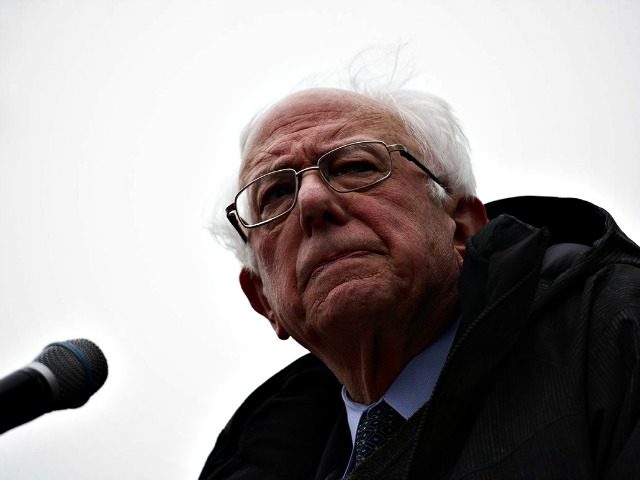Sen. Bernie Sanders (I-VT) is running again to be president of the United States, and although he lost the Democratic nomination in 2016, he hopes to earn the mantle this cycle and bring his brand of socialism to power.
One thing he hopes to do better on the road to the White House is to do a “better job” explaining socialism.
“I think what we have to do, and I will be doing it, is to do a better job maybe in explaining what we mean by socialism — democratic socialism,” Sanders told National Public Radio’s (NPR) Morning Edition on Monday. “Obviously, my right-wing colleagues here want to paint that as authoritarianism and communism and Venezuela, and that’s nonsense.”
Sanders claims that the distinction between socialism and democratic socialism is the latter will bring about a “vibrant democracy” and that his critics are engaged in voter suppression.
“What I mean by democratic socialist is that I want a vibrant democracy,” Sanders said. “I find it interesting that people who criticize me are busy actively invoked in voter suppression trying to keep people of color or low-income people from voting because they don’t want a vibrant democracy. I do.”
But despite Sanders’ new twist on an age-old and failed system of government, the presidential candidate admits the bottom line of his ideology is the redistribution of wealth, without using that specific description.
“Second of all, what it means … is that the wealthiest country in the history of the world we can provide a decent standard of living for all … people,” Sanders said. “That’s just the reality.”
“That’s not Utopian dreaming; that is a reality,” Sanders said. “Health care for all can be done, and we can save money doing it.”
“We can have a minimum wage which is a living wage, and I’m delighted to see that, you know, right now, five states already passed $15 an hour minimum wage,” Sanders said. “The House of Representatives is gonna do it.”
“We have got to do that,” Sanders said.
Even though he did not win the nomination or presidency in 2016 “Sanders scored a sort of victory after 2016, as many of his ideas have caught on,” NPR noted.
But that victory may make his 2020 run more difficult, as he is now running against several other candidates with similar ideas. The challenge this time is not only to sell those ideas to skeptical, more-moderate voters but to differentiate himself from other progressive candidates such as Sens. Elizabeth Warren of Massachusetts and Kamala Harris of California.
While Sanders’ “socialist” brand may play well among primary voters, it could be tougher to sell among more moderate Democrats and centrist or right-leaning independent voters.
The NPR report also included a recent NBC News/Wall Street Journal poll that showed only 25 percent of Americans expressed support for socialism or a socialist candidate, with 72 percent saying they have reservations or are not comfortable voting for a candidate with that ideology.
Follow Penny Starr on Twitter

COMMENTS
Please let us know if you're having issues with commenting.